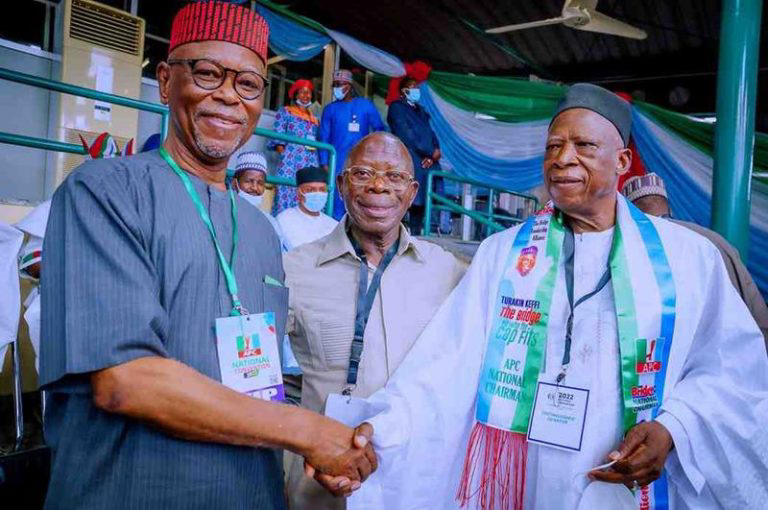JIBO'S BOOK AN ANSWER TO ZAPA'S ABRACADABRA CRACKING THE TIV CODE By Prof Mvendaga Jibo
JIBO'S BOOK AN ANSWER TO ZAPA'S ABRACADABRA
CRACKING THE TIV CODE
By Prof Mvendaga Jibo
Prof. Mvendaga Jibo’s new book, his most voluminous as yet, is a recreation of Tiv contemporary history from 1993 till date. As a major voice…
Prof. Mvendaga Jibo’s new book, his most voluminous as yet, is a recreation of Tiv contemporary history from 1993 till date. As a major voice in Tiv politics, both in theory and practice, Jibo has demonstrated erudition, technical mastery and rare courage in his account of major events and characters and has set new insights for scholars and politicians.
After reading through the book, it becomes obvious that its title, Elite Politics in the Middle Belt of Nigeria is slightly misplaced. Jibo is concerned essentially with the behaviour of Tiv elites.
Written with profound clarity and imagination, the book is cast in 10 chapters engaging a multiplicity of opinions of writers in books, newspapers and journals. As a result, the author skilfully galvanizes fairly objective and realistic interpretations on virtually every character or social event under scrutiny. Even at that, this book is as provocative as it is persuasive with its sublime arguments on the failures and contradictions of contemporary Tiv elites. From its first chapter which introduces its theoretical framework to its second, which highlights the stepping aside of General Babangida from government in 1993, Jibo begins by telling the story of the two influential Tiv Generals that were then in power.
He says both Generals John Mark Inienger and SVL Malu were indifferent to the issues of the creation of states and local government areas, which their counterparts in other ethnic minorities used effectively to promote their areas. Jibo reveals that Dr. Iyorchia Ayu who also emerged as the Senate President at that time was indifferent to the political realities before him and engaged in a clamour for “strong ideological commitment to democracy (p. 25). At that crucial time, Ayu had failed to play politics with both President Babangida and General Yar’Adua who had pivotal roles in his emergence as Senate President which led to his impeachment. Prof. Jibo also quotes Sebastian Agbinda describing how Ayu also fell out with Adasu who also helped him to win election into the Senate:
The socialist in Ayu became hard to distinguish. Relations with his mentor, Moses Adasu, were also difficult. Ayu came between Adasu and the State House of Assembly and nearly got him impeached (p. 29).
So, although, Ayu prematurely lost the Senate Presidency which was the highest political position ever held by a Tiv man, he was shortly appointed as Minister of Education by the succeeding Abacha military regime. Here too, Jibo observes that Ayu became unpopular both with his colleagues in the university and his constituents at home. He again lost the sympathy of General Sani Abacha because of his fraternisation with Senator Bola Tinubu and NADECO.
In chapter two, Jibo discusses in details Ayu’s actions or inactions in the election of George Akume as Governor in 1999; the formation of Jemgbagh Foundation; his master-servant relationship with the then Governor George Akume; his relationship with Atiku Abubakar; his feud with Chief Barnabas Gemade; his appointment of Professor Tseaa Shambe as Director-General of Standards Organisation of Nigeria (SON) and its consequent anti-climax; his role in the privatisation of Benue Cement Company (BCC); his early decamping to the Action Congress of Nigeria (ACN) and his recent return to the ruling People’s Democratic Party (PDP).
Chapter three and four are dedicated to the George Akume years as Governor of Benue State and the ineptitude and violence that epitomized it. The author highlights how Akume had no respect for the Tiv doctrine of “Ya-na-angbian” as he kept recommending his brother from Jemgbagh, Iyorchia Ayu, over and over again for appointment as Minister while he served as governor.
The author reveals the impact of the Akume-Gemade feud on the then Speaker of the Benue State House of Assembly, Mrs. Margaret Icheen and how she was stampeded into resigning from her position.
Chapters five, six and seven deal principally with the current Governor of Benue State, Dr. Gabriel Suswam and his attempt to grapple with what Jibo describes as contemporary Tiv challenges. These are: disunity among the Tiv elites, generational politics initiated by the Suswam era to patronise former classmates; clannish chasms, Iyuhe (envy), senseless acrimony, incessant inter-ethnic bloody clashes; cultism, the Fulani invasion of Tivland; the alleged complicity of the Tiv Traditional Council in the Fulani crises, the inexplicable disagreement among the Christian groups in Benue as well as poverty and the creeping inferiority complex of the people.
The book also narrates the stories of prominent Tiv elites like Dr. Patrick Ityohegh, former Director-General of NTA; Chief Michael Kaase Aondoakaa, former Attorney General of the Federation and Minister of Justice; Dr. Paul Orhii, current Director-General of NAFDAC; Mr. Robert Orya, current Managing Director of NEXIM Bank; Prof. Daniel Saror, former Vice-Chancellor of the Ahmadu Bello University; Mrs. Farida Mzamber Waziri, former Chairman of the EFCC and the Hon. Justice Alloysius Iyorgyer Katsina-Alu, all of who were persecuted unjustly in office for doing the right thing. He observed that in most cases these victims were blamed for no just cause and had no sympathy even among their Tiv brothers and sisters. This chapter is certainly a rich compendium of who’s is who among the Tiv in federal service and the exhibition of their strength of character in the face of trial.
The case of the Hon. Justice Alloysius Katsina-Alu is particularly very disturbing as it humiliated not only the Tiv, but a thorough-bred professional at the twilight of his glorious career as a jurist that spanned about forty years. His misunderstanding with the then President of the Court of Appeal, Hon. Justice Ayo Salami over the handling of the Governorship Appeal Tribunal of Sokoto State led to Salami leaking the matter to the press and consequently unleashing a campaign of calumny against the Hononourable Chief Justice of Nigeria. Although the National Judicial Council (NJC) investigated the matter twice and indicted Justice Ayo Salami for perjury, the entire Nigerian populace virtually rose up against Justice Katsina-Alu. The mass media was awash with condemnations of Justice Katsina-Alu emanating from pressure groups, the labour, ASUU, pro-democracy groups and prominent lawyers across the nation. The Nigerian Bar Association (NBA) even boycotted all official activities that involved the Chief Justice, so much so that there was not even a valedictory court session to honour this illustrious Nigerian at his retirement as the Chief Justice of Nigeria. Apart from Barrister Sebastine Hon (SAN) and a few other lawyers including Judges of the Benue State judiciary, no other persons among the Tiv elites stood up to publicly defend Justice Katsina-Alu. The Tiv Traditional Council also said nothing. A few non-Tiv sympathisers like Mahmud Jega of Daily Trust were however drowned in the cacophony of condemnations.
Above all, this book, Elite Politics in the Middle Belt of Nigeria 1993-2014 by Professor Mvendaga Jibo is a must read for politicians, academics, general reading public, public intellectuals interested in ethnic studies and elite politics broadly, and Nigerian politics in particular.




Comments
Post a Comment